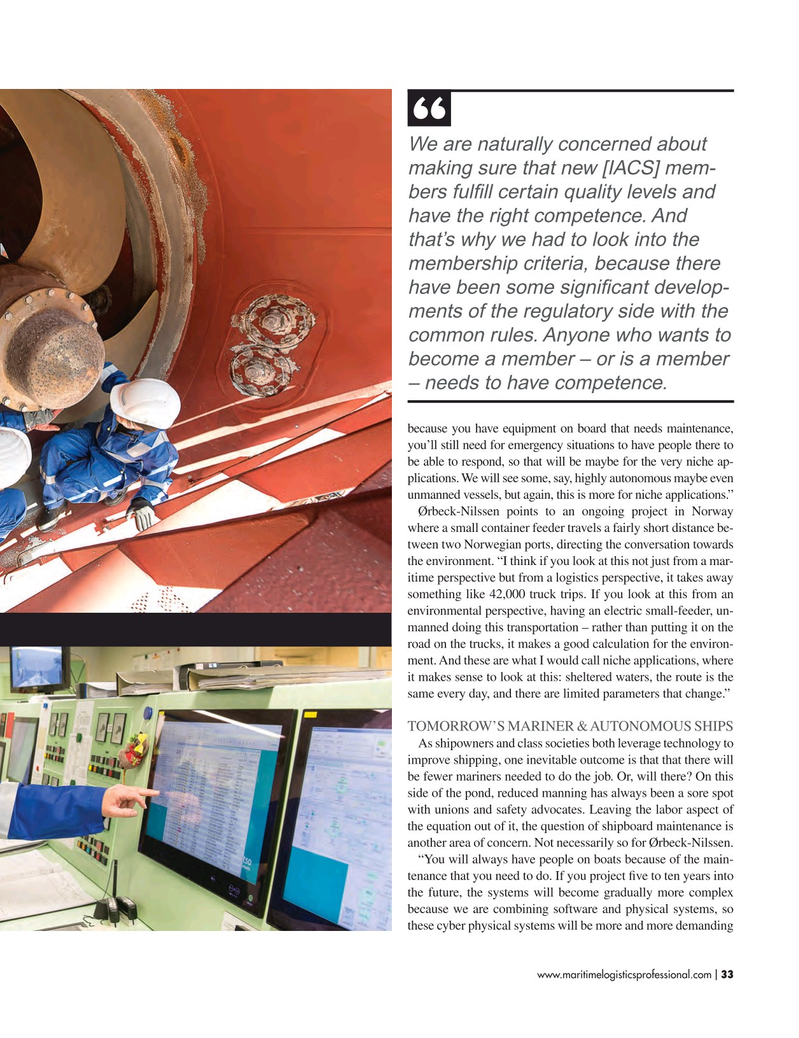
Page 33: of Maritime Logistics Professional Magazine (Mar/Apr 2018)
IT & Software
Read this page in Pdf, Flash or Html5 edition of Mar/Apr 2018 Maritime Logistics Professional Magazine
We are naturally concerned about making sure that new [IACS] mem- bers fulfll certain quality levels and have the right competence. And that’s why we had to look into the membership criteria, because there have been some signifcant develop- ments of the regulatory side with the common rules. Anyone who wants to become a member – or is a member – needs to have competence.
because you have equipment on board that needs maintenance, you’ll still need for emergency situations to have people there to be able to respond, so that will be maybe for the very niche ap- plications. We will see some, say, highly autonomous maybe even unmanned vessels, but again, this is more for niche applications.”
Ørbeck-Nilssen points to an ongoing project in Norway where a small container feeder travels a fairly short distance be- tween two Norwegian ports, directing the conversation towards the environment. “I think if you look at this not just from a mar- itime perspective but from a logistics perspective, it takes away something like 42,000 truck trips. If you look at this from an environmental perspective, having an electric small-feeder, un- manned doing this transportation – rather than putting it on the road on the trucks, it makes a good calculation for the environ- ment. And these are what I would call niche applications, where it makes sense to look at this: sheltered waters, the route is the same every day, and there are limited parameters that change.”
TOMORROW’S MARINER & AUTONOMOUS SHIPS
As shipowners and class societies both leverage technology to improve shipping, one inevitable outcome is that that there will be fewer mariners needed to do the job. Or, will there? On this side of the pond, reduced manning has always been a sore spot with unions and safety advocates. Leaving the labor aspect of the equation out of it, the question of shipboard maintenance is another area of concern. Not necessarily so for Ørbeck-Nilssen. “You will always have people on boats because of the main- tenance that you need to do. If you project fve to ten years into the future, the systems will become gradually more complex because we are combining software and physical systems, so these cyber physical systems will be more and more demanding www.maritimelogisticsprofessional.com 33
I

 32
32

 34
34
